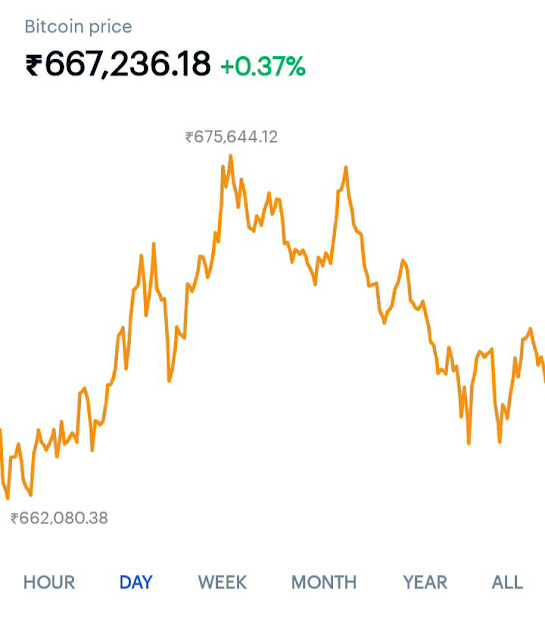How does Bitcoin make money?
BUTon its birthday it could be worth less by the end of year than it was on its previous birthday - for only the second time since it arrived in the virtual wallet.
In late October 2017, bitcoin was worth just under £5000 - now it's worth just a little more. And there are still a couple of months of trading to go.
But what is Bitcoin and how does it all work?
What is Bitcoin?
Bitcoin, often described as a cryptocurrency, a virtual currency or a digital currency - is a type of money that is completely virtual.
It's like an online version of cash. You can use it to buy products and services, but not many shops accept Bitcoin yet and some countries have banned it altogether.
The physical Bitcoins you see in photos are a novelty. They would be worthless without the private codes printed inside them.
How does Bitcoin work?
Each Bitcoin is basically a computer file which is stored in a 'digital wallet' app on a smartphone or computer.
People can send Bitcoins (or part of one) to your digital wallet, and you can send Bitcoins to other people.
Every single transaction is recorded in a public list called the blockchain.
This makes it possible to trace the history of Bitcoins to stop people from spending coins they do not own, making copies or undo-ing transactions.
There are three main ways people get Bitcoins.
You can buy Bitcoins using 'real' money.
You can sell things and let people pay you with Bitcoins.
Or they can be created using a computer.
How are new Bitcoins created?
In order for the Bitcoin system to work, people can make their computer process transactions for everybody.
The computers are made to work out incredibly difficult sums. Occasionally they are rewarded with a Bitcoin for the owner to keep.
People set up powerful computers just to try and get Bitcoins. This is called mining.
But the sums are becoming more and more difficult to stop too many Bitcoins being generated.
If you started mining now it could be years before you got a single Bitcoin.
You could end up spending more money on electricity for your computer than the Bitcoin would be worth.
Why are Bitcoins valuable?
There are lots of things other than money which we consider valuable like gold and diamonds. The Aztecs used cocoa beans as money!
Bitcoins are valuable because people are willing to exchange them for real goods and services, and even cash.
Why do people want Bitcoins?
Some people like the fact that Bitcoin is not controlled by the government or banks.
People can also spend their Bitcoins fairly anonymously. Although all transactions are recorded, nobody would know which 'account number' was yours unless you told them.
Is it secure?
Every transaction is recorded publicly so it's very difficult to copy Bitcoins, make fake ones or spend ones you don't own.
It is possible to lose your Bitcoin wallet or delete your Bitcoins and lose them forever. There have also been thefts from websites that let you store your Bitcoins remotely.
The value of Bitcoins has gone up and down over the years since it was created in 2009 and some people don't think it's safe to turn your 'real' money into Bitcoins.
Key Highlights
- October 31, 2008: Bitcoin whitepaper published.
- January 3, 2009: The Genesis Block is mined.
- January 12, 2009: The first Bitcoin transaction.
- December 16, 2009: Version 0.2 is released.
- November 6, 2010: Market cap exceeds $1 million USD.
- October 2011: Bitcoin forks for the first time to create Litecoin.
- June 3, 2012: Block 181919 created with 1322 transactions. It is the largest block to-date.
- June 2012: Coinbase launches.
- September 27, 2012: Bitcoin Foundation is formed.
- February 7, 2014: Mt. Gox hack.
- June 2015: BitLicense gets established. This is one of the most significant cryptocurrency regulations.
- August 1, 2017: Bitcoin forks again to form Bitcoin Cash.
- August 23, 2017: SegWit gets activated.
- September 2017: China bans BTC trading.
- December 2017: First bitcoin futures contracts were launched by CBOE Global Markets (CBOE) and the Chicago Mercantile Exchange (CME).
- September 2018: Cryptocurrencies collapsed 80% from their peak in January 2018, making the 2018 cryptocurrency crash worse than the Dot-com bubble’s 78% collapse.
- November 15, 2018: Bitcoin’s market cap fell below $100 billion for the first time since October 2017.
- October 31, 2018: 10-year anniversary of Bitcoin.










Comments
Post a Comment